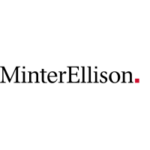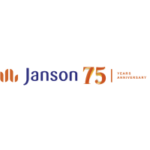-
What are the main methods of resolving disputes in your jurisdiction?
In Brazil, the prevailing methods of commercial dispute resolution include litigation, arbitration, and alternative dispute resolution methods, such as mediation and conciliation. Among these, litigation before courts of law is the most widely used, governed by the constitutional principles of due process and the 2015 Code of Civil Procedure (CPC/2015).
In recent years, however, arbitration has gained relevance in more complex business disputes, supported by the Arbitration Act (Law No. 9,307/1996) and by the Judiciary, which recognise and confirm foreign arbitral awards, within the limits established by arbitration agreements. Its main advantages are procedural flexibility, the choice of specialised arbitrators and confidentiality, although there is still significant criticism regarding the lack of transparency and the slow pace of some arbitration proceedings.
Mediation, in turn, seeks to facilitate agreements with the assistance of a neutral mediator and is widely used in corporate and contractual disputes. Together with conciliation – promoted directly by courts through hearings conducted by judges – it is one of the alternative methods of dispute resolution.
-
What are the main procedural rules governing litigation in your jurisdiction?
Litigation in Brazil is primarily governed by unified federal legislation, the Civil Procedure Code of 2015 (CPC/2015), which applies to all civil cases at the state and federal levels, ensuring greater uniformity in judicial proceedings. CPC/2015 was consolidated upon important constitutional pillars, such as the guarantees of due process of law, right to full answer and defence, adversarial proceedings and the right to appeal.
The provisions of the Civil Procedure Code of 2015 are supplemented by specific federal rules governing matters relating to commercial law, which perform a subsidiary or specialised regulatory function, depending on the specific case. Among the most important legal instruments are the Arbitration Act (Law No. 9,307/1996), the Mediation Act (Law No. 13,140/2015), the Brazilian Corporation Act (Law No. 6,404/1976) and the Judicial Reorganisation and Bankruptcy Act (Law No. 11,101/2005), among others.
The interpretation of procedural and substantive rules in Brazilian law is integrated with the consolidated case law, especially from higher courts, and with constitutional principles which, together, seek to structure a regulatory system aimed at ensuring legal certainty within the country.
-
What is the structure and organisation of local courts dealing with claims in your jurisdiction? What is the final court of appeal?
The Brazilian Judiciary is divided into different domains and courts, with powers defined mainly by the Federal Constitution. There are two major subsystems for commercial disputes: the state courts, which hear most private disputes, and the Federal courts, which are responsible for cases involving the Federal Government, federal agencies or specific federal matters.
Each of these systems has two levels. At the first level, trial courts, cases are heard by a single judge, located in the county districts (state courts) or in the judicial sections (federal courts). In the second instance, the Courts of Justice hear appeals against decisions of state judges, and the Federal Regional Courts are competent to review decisions of federal judges. In these courts, appeals are heard by panels or chambers, usually consisting of three court of appeals judges.
Typical commercial disputes are more commonly found in the state courts, where there is a trend, already adopted in the main economic centres (São Paulo and Rio de Janeiro), to create courts and chambers specialising in business law, which deal exclusively with commercial disputes. This specialisation has led to more technical and faster decisions, contributing to a more secure business environment.
Above the state and federal courts are the Superior Courts, located in the federal capital, Brasília. The Superior Court of Justice is the highest court for infra-constitutional matters and has the function of standardising the interpretation of constitutional laws. The Federal Supreme Court is responsible for ensuring the supremacy of the Constitution, hearing appeals involving relevant constitutional issues.
With regard to internal organisation by subject matter, in addition to the state and federal courts, Brazil has specialised courts in certain areas, such as labour courts, electoral courts and military courts, which have their own structures.
-
How long does it typically take from commencing proceedings to get to trial in your jurisdiction?
The length of commercial litigation proceedings in Brazil varies according to the complexity of the case, the nature of the claim and the number of appeals available. According to the report Justice in Numbers, issued by the National Council of Justice in 2024, the average time between the filing of a lawsuit and the trial court judgment is approximately 2 years and 10 months. Beyond the trial court, if we consider the entire process up to the final court of appeal, including the higher courts (STJ or STF), the average duration of a commercial dispute can reach 6 to 8 years.
Several measures have been adopted to mitigate such delays. Specialised commercial courts, for example, have significantly reduced the duration of proceedings, with deadlines up to 50% shorter than in ordinary civil courts. It is also increasingly common for parties to agree on arbitration clauses and thus resort to arbitration in commercial contracts in order to seek a faster solution. In any event, it is essential that litigants be prepared for potentially lengthy proceedings, unless there is a settlement between the parties or effective use of alternative dispute resolution methods.
-
Are hearings held in public and are documents filed at court available to the public in your jurisdiction? Are there any exceptions?
The general rule in Brazil is that procedural acts are public, as provided for in the Federal Constitution (Article 5, LX) and in the Code of Civil Procedure (CPC) (Article 11). Hearings and trial sessions are, in principle, open to the public, and the case files can be accessed electronically, including by third parties, with basic information about the case. However, there are legal exceptions in which records are under seal, such as in cases involving family law, minors, intimacy, trade secrets or relevant public interests (Article 189, CPC). In such cases, proceedings are restricted to the parties and their lawyers.
In business and arbitration contracts, two situations of secrecy are common: (i) legal proceedings related to arbitration (confirmation, annulment or preliminary injunctions); and (ii) actions involving strategic company information (trade secrets, financial data, etc.), in which the judge may declare total or partial secrecy, limiting the restriction to specific procedural documents or evidence.
In summary, the Brazilian system favours transparency but allows for relevant exceptions to protect fundamental rights and strategic business interests. Arbitration, due to its confidential nature, remains a preferred route when confidentiality is essential.
-
What, if any, are the relevant limitation periods in your jurisdiction?
In Brazil, limitation periods vary according to the nature of the claim and are mainly set by the Civil Code, which establishes a general period of 10 years, applicable only when there is no other specific rule.
For commercial disputes, the most relevant limitation periods are 5 years for contractual actions involving liquidated debts and payment obligations, and 3 years for civil damages arising from unlawful acts, such as unfair competition or product liability. There are also specific time limits, such as 1 year for insurance actions, and 2 years for actions against withdrawing partners or for annulment of corporate resolutions.
As a rule, the time is computed starting from the date on which the fact and the possibility of bringing an action become known, and may be suspended or interrupted in situations provided for by law.
-
What, if any, are the pre-action conduct requirements in your jurisdiction and what, if any, are the consequences of non-compliance?
The legal system does not, as a general rule, require pre-trial measures before filing a lawsuit, so it is not required by law for the parties to exhaust negotiations or to send a letter before claim in order to resort to the Judiciary, except in specific legal cases.
There are, however, exceptions in which prior steps are required, such as multi-tiered dispute resolution clauses in negotiation, mediation, or arbitration agreements. Failure to comply with these may lead to the dismissal of the case or, at least, its suspension. Voluntary pre-litigation mediation is encouraged by Brazilian courts and councils of justice, but its use is generally optional.
In other words, there is no mandatory formal pre-resolution protocol in Brazilian commercial litigation, so that the absence of a prior agreement does not prevent the filing of a lawsuit and does not, as a rule, entail any procedural penalty. The Brazilian system allows direct access to the courts, with the initial conciliation stage provided for in the Code of Civil Procedure itself.
-
How are proceedings commenced in your jurisdiction? Is service necessary and, if so, is this done by the court (or its agent) or by the parties?
In Brazil, the process begins with the electronic filing of the complaint with the competent court, accompanied by all necessary documents. After formal review by the judge, and if the legal requirements are met, the defendant is served with a summons, which is an essential step in the adversarial process.
The summons is issued exclusively under the supervision of the Judiciary, through court officials, certified mail with a return receipt request or, preferably, by electronic means, insofar as companies and public entities must maintain a register in the judicial systems in order to receive summonses by this means; if they do not confirm receipt within three days, the other traditional methods mentioned above apply.
The plaintiff cannot serve the summons on its own, being limited to providing the defendant’s details and the means available to locate them, under penalty of delays or dismissal of the case, and service by public notice is used only as a last resort, when all other attempts have failed.
In cases where the defendants are domiciled abroad, service is performed in accordance with international treaties, such as the Hague Convention (to which Brazil is a party), or by means of a letter rogatory issued by the Superior Court of Justice.
-
How does the court determine whether it has jurisdiction over a claim in your jurisdiction?
Jurisdiction in Brazil is defined based on objective legal criteria established mainly in the Code of Civil Procedure, which defines Brazilian courts as having jurisdiction over other countries when there is at least one point of connection with the country, with Brazil being either the domicile of the defendant, the place of performance of the obligation, or the place where the event giving rise to the claim has occurred.
Once national or international jurisdiction has been established, the court determines internal jurisdiction, i.e., which court within Brazil will be responsible for the case. In personal and contract actions, as a general rule, the court of the defendant’s domicile applies. Also common are criteria such as the place where the obligation is to be performed, especially in contracts, or, in specific cases, the place where the defendant company is headquartered. In addition, there are cases of absolute territorial jurisdiction, such as in actions related to real estate, which must be brought in the court where the property is located, and in probate cases, which must be processed in the place where the property to be divided is located.
The judge analyses these elements at the outset of the proceedings or when the issue is raised by the defendant. If there is a valid choice of venue clause in favour of a foreign court or arbitration, and the matter is not subject to the exclusive jurisdiction of the Brazilian courts, the judge must decline jurisdiction. Otherwise, if the legal criteria are met, the proceedings continue as normal.
-
How does the court determine which law governs the claims in your jurisdiction?
The definition of the applicable substantive law follows the rules of private international law set forth in the Introduction Act to Brazilian Law Rules (LINDB). As a rule, the law of the place where the obligation was established applies, unless the parties have validly chosen another law. In practice, the principle of freedom of contract is widely recognised: contractual clauses that choose foreign law are respected, provided that they do not conflict with national sovereignty, public policy or mandatory Brazilian rules.
In international business contracts between equal parties, the choice of applicable law, even if foreign, tends to be widely accepted, although certain matters are mandatorily governed by Brazilian law, such as property rights over real estate located in Brazil or consumer protection rules in adhesion contracts.
In the absence of a choice of law clause, the criteria set forth by LINDB apply: for contracts, the law of the place of contracting; for succession, that of the last domicile of the deceased; for civil liability, that of the place of the act or damage, according to the predominant connection. In business disputes, the main connection is usually evident or previously agreed upon.
The application of foreign law is restricted to the merits, as the procedure continues to be governed by Brazilian procedural law. The party invoking foreign law must prove its content and validity, and the judge may require an official translation, legal opinions or expert evidence.
-
In what circumstances, if any, can claims be disposed of without a full trial in your jurisdiction?
The Brazilian procedural system allows for some forms of early conclusion of proceedings, with or without prejudice. The first case is the preliminary dismissal of the claim (art. 332, Code of Civil Procedure), which allows the judge to reject the action even before the defendant is summoned, when the claim contradicts established case law from the higher courts, binding precedent, or is manifestly time-barred by the statute of limitations, in which case the judgment becomes res judicata.
It is also possible to extinguish the proceedings without prejudice for procedural reasons, such as lack of standing, res judicata, the existence of an arbitration agreement, inaction from the plaintiff, or other formal defects. In such cases, the judge may decide on the basis of a preliminary analysis or after the defendant has responded, without proceeding to the discovery phase.
Another possibility is default: if the defendant, duly summoned, does not file a defence within the legal time limit, the facts alleged by the plaintiff are presumed to be true, which may lead to a direct judgment in favour of the plaintiff, unless the matter is of public order or requires the production of additional evidence.
Total or partial early judgment on the merits is also provided for when there is no need to produce additional evidence, allowing the judge to decide based on the documentary evidence already in the case file. Furthermore, if the parties reach an agreement during the proceedings, the judge may confirm it and close the case, dispensing with the other stages of litigation.
-
What, if any, are the main types of interim remedies available in your jurisdiction?
The Brazilian civil procedure system offers several provisional remedies to ensure the effectiveness of the proceedings and prevent damage while the merits of the case are being decided. Noteworthy in this regard is urgent preliminary relief, which accelerates the practical effects of the claim when the party is likely to prevail at trial or risk of damage in case of a delay, such as the suspension of undue collection or the immediate establishment of specific performance or a prohibitory injunction. There are also preliminary injunctions, aimed at preserving the useful outcome of the proceedings without immediately satisfying the substantive right, such as attachment or seizure of assets, search and seizure of documents or assets, and other protective measures.
In addition, it is possible to request the early production of evidence when there is a risk of spoliation of evidence in the course of the proceedings. In addition to these cases, the Code of Civil Procedure also provides for the protection of evidence, granted even without urgency, when the plaintiff’s right is evident on the basis of documentary evidence or established case law.
These are measures that may be requested from the initial petition and, in urgent cases, granted without prior hearing of the defendant. The judge may require that the requesting party provide security and, if the measure proves to be improper, there may be liability for any damages caused. The effectiveness of such relief is temporary and depends on the findings of the court at the end of the proceedings.
-
After a claim has been commenced, what written documents must (or can) the parties submit in your jurisdiction? What is the usual timetable?
In Brazil, the ordinary procedure begins with the filing of a complaint, accompanied by the documents necessary to prove the allegations described therein. The defendant is then summoned to file an answer within fifteen (15) business days. The plaintiff may then file a reply, also within 15 business days, to rebut the defendant’s arguments and comment on documents or preliminary objections.
During the pretrial conference, the parties may specify evidence, appoint witnesses and request expert or additional documentary evidence. If there is a preliminary hearing, the judge may, at the end, set a deadline for final arguments or directly issue a ruling. Throughout the proceedings, motions may be filed whenever necessary (e.g., requests for provisional relief, attachment of documents, or statements on evidence). It is also possible to file affirmative defences (such as lack of jurisdiction or arbitration agreement) and counterclaims (a pleading from the defendant) within the answer.
Rulings on motions in the course of the proceedings may be appealed (with the appeal being named agravo de instrumento) within 15 days, in which case the opposing party is summoned to file a counter-appeal within the same period. The judgment, the final decision on the merits may also be appealed. It is also possible to file a motion for clarification targeting omissions, contradictions or ambiguities in court rulings and, when addressing higher courts, special or extraordinary appeals, with specific requirements for admissibility.
In summary, the procedural schedule in Brazil follows a structured sequence: complaint, answer, reply, investigation (if necessary), judgment, and appeals. The deadlines are, as a general rule, 15 business days, and the system guarantees a wide range of opportunities for written submissions throughout all phases, including on appeal.
-
What, if any, are the rules for disclosure of documents in your jurisdiction? Are there any exceptions (e.g. on grounds of privilege, confidentiality or public interest)?
Brazil does not adopt a broad and automatic disclosure regime like the common law system. During the proceedings, each party presents only the evidence it deems favourable to its case, without any obligation to produce documents that are adverse to its case. The compulsory production of evidence depends on a specific request to the judge, who will decide, based on relevance, whether the request is necessary and precise.
The main tools for producing evidence are motions for an order compelling disclosure of documents or items, regulated by the Code of Civil Procedure, and official letters to third parties to obtain information (such as bank details, electronic records or public documents). The judge may also, in exceptional cases, issue a search order for evidence in cases where there is a risk of destruction or concealment.
There are legal limits to protect confidentiality: communications between lawyers and clients are protected by legal professional privilege and cannot be compelled; trade secrets and sensitive information may be protected by measures such as sealing orders, restricted access or independent expert examination; data covered by statutory secrecy, such as tax or banking information, may be requested by the court, provided that there are specific grounds and proportionality.
In summary, the Brazilian system favours specific and reasoned production of evidence, controlled by the judge. There is no general obligation to disclose adverse documents, but unjustified non-compliance with court orders may lead to a presumption of the truth of the facts sought to be proven.
-
How is witness evidence dealt with in your jurisdiction (and in particular, do witnesses give oral and/or written evidence and what, if any, are the rules on cross-examination)? Are depositions permitted?
In Brazil, evidence of witness is produced orally at a hearing conducted by a judge, with no legal provision for written statements or pre-trial questioning. Witnesses are appointed in advance by the parties and heard under oath to tell the truth, with questions asked by the judge or lawyers, always under judicial control. The Brazilian model does not provide for cross-examination, but the adversarial process is guaranteed: the opposing party may question the witness after the first examination, and any additional clarifications may be admitted in a single hearing. All testimony is taken orally, recorded in writing or by recording, depending on the resources available to the court.
There is no deposition outside the proceedings. The only exception is the early production of witness evidence, authorised by the court in cases where there is a risk of evidence being lost (e.g. seriously ill witnesses). The parties are not witnesses and, if called, give unsworn testimony, without any legal obligation to tell the truth.
Witnesses prevented by law (e.g., lawyers regarding confidential matters or close relatives) cannot testify, and apparent bias may affect the weight of the testimony.
-
Is expert evidence permitted in your jurisdiction? If so, how is it dealt with (and in particular, are experts appointed by the court or the parties, and what duties do they owe)?
Expert evidence is widely used in Brazilian litigation, especially in commercial disputes involving technical or specialised issues, such as accounting, finance, engineering or auditing aspects. The expert is appointed by the judge, based on criteria of specialisation and impartiality, and is responsible for the expert’s report, which will serve as the main technical evidence in the proceedings.
The parties may appoint technical assistants, who monitor the work of the court-appointed expert and present their own opinions with the aim of supplementing or contesting the conclusions of the official report. The technical cross-examination takes place through questions (drawn up by the parties) and written statements on the report. The judge may summon the expert to provide clarification at a hearing, at which time the lawyers may ask questions under judicial supervision.
The court expert acts as an assistant to the court, with a duty of impartiality, and must answer questions based on objective technical criteria. The conclusions of the report are not binding on the judge, but carry considerable weight, especially when there is no consistent technical challenge.
The cost of the expert opinion is usually paid in advance by the party requesting it and may be apportioned or imposed on the losing party at the end. The fees are set by the court, and the party that gives rise to the need for the evidence generally bears the costs.
-
Can final and interim decisions be appealed in your jurisdiction? If so, to which court(s) and within what timescale?
The right to appeal is a pillar of the Brazilian civil procedure system, and applied to final decisions on the merits (judgments) or against interlocutory orders rendered in the course of the proceedings.
An appeal may be filed against a judgment, which allows for a review of the facts and points of law by a judicial panel from the Court of Justice or the Federal Regional Court, as the case may be.
The deadline for filing an appeal is fifteen (15) business days and, as a rule, operates as a stay of judgment.
Against relevant interlocutory orders, the appropriate remedy is an interlocutory appeal, also within 15 business days. The Code of Civil procedure provides an exhaustive list of the cases in which it is appropriate, such as decisions on provisional relief, arbitration clauses, third-party intervention, and jurisdiction. The appeal is also judged by a judicial panel, and there may be a preliminary decision by the reporting judge.
After the judgment in the appellate court, appeals may be filed with the higher courts, through special appeal to the Superior Court of Justice (for violation of federal law) and through extraordinary appeal to the Supreme Court (for violation of the Constitution). Both require formal prerequisites and do not allow for a retrial or hearing of new evidence. The deadline is also 15 business days, and the court of origin makes an initial ruling on admissibility.
There are also motions for clarification, with a deadline of five days, to clarify omissions or contradictions in decisions; internal appeals against single-judge decisions; and request for resolution of the conflict in decisions in higher courts, among others.
-
What are the rules governing enforcement of foreign judgments in your jurisdiction?
For a foreign judgment to be enforceable in Brazil, it must be submitted for approval to the Superior Court of Justice, which will receive the request made by the interested party, together with a certified copy of the judgment, proof that it is final and conclusive in the country of origin, and a certified translation. The defendant is summoned in the confirmation proceedings and may present a defence limited to formal aspects, such as lack of valid summons, contrary to public policy or national sovereignty.
The Superior Court of Justice analyses formal criteria, such as the competent jurisdiction of the foreign authority, respect for adversarial proceedings and compatibility with fundamental Brazilian principles, refraining from a retrial, which is not within its jurisdiction. Once homologated, the judgment becomes effective in Brazil as if it were a domestic judgment, allowing the creditor to seek enforcement of the judgment before the Federal court or the competent court of the debtor’s domicile. Brazil is also a signatory to the 1958 New York Convention, which governs the recognition of foreign arbitral awards, also submitted to the STJ.
There is no formal requirement of reciprocity or specific statute of limitations for the request for recognition, but enforcement after recognition is subject to Brazilian statutes of limitations.
-
Can the costs of litigation (e.g. court costs, as well as the parties’ costs of instructing lawyers, experts and other professionals) be recovered from the other side in your jurisdiction?
The Brazilian legal system adopts the rule according to which the unsuccessful party is ordered to pay the costs of the successful party (sucumbência), including court fees and attorney’s fees. The costs also include proven expenses related to the proceedings (such as expert witnesses), and are reimbursable upon proof. In the event of partial defeat, there may be a pro rata apportionment.
The fees for losing the case, set by the judge, vary between 10% and 20% of the amount of the award or economic benefit obtained or, when this amount cannot be measured, by equitable assessment, considering criteria such as the complexity of the case, the length of the proceedings and the skill, effort, specialised knowledge and responsibility employed by the lawyer. In this case, the judge sets a fixed amount or percentage outside the standard parameters. In both cases, fees are paid directly to the winning party’s lawyer. If there is an appeal and the appellant loses again, the court may increase the fees as a procedural penalty.
These amounts do not fully cover the private contractual fees between the client and the lawyer, which are not reimbursable by the opposing party.
-
What, if any, are the collective redress (e.g. class action) mechanisms in your jurisdiction?
Brazil has its own system of collective actions, although it does not follow the parameters of US class actions, as there is no judicial certification of class, nor a pot-out mechanism. Collective protection is mainly regulated by the Public Civil Action Act (Law No. 7,347/1985) and the Consumer Protection Code (Law No. 8,078/1990), which allow for the judicial defence of diffuse, collective and homogeneous individual rights by legally authorised entities, such as the Public Prosecutor’s Office, the Public Defender’s Office, federal entities, and qualified civil associations.
Class actions seek to protect groups affected by the same harmful act, and the decisions rendered may have erga omnes effects, automatically benefiting all holders of the right in question, especially in cases involving individual rights arising from the same event. If the claim is allowed, the beneficiaries may seek individual enforcement of the judgment; and any dismissal due to lack of evidence does not prevent future individual actions.
These actions are common in cases involving the environment, consumer protection, capital markets and mass contractual abuses, and can result in broad convictions based on a single decision, avoiding the proliferation of individual actions.
-
What, if any, are the mechanisms for joining third parties to ongoing proceedings and/or consolidating two sets of proceedings in your jurisdiction?
Brazilian law provides for various mechanisms to integrate third parties into the proceedings or to join related actions, which may occur at the initiative of the parties or by court order, especially when the presence of the third party is necessary for the complete resolution of the dispute, which will have , right to full answer and defence, including the rights to produce evidence and to appeal.
A joinder of parties allows new parties to be included as plaintiffs or defendants, including sua sponte by the court. There are also classic forms of intervention: intervention, when a third party has a legal interest in the victory of one of the parties; impleader, used to anticipate discussion of an indemnity claim; Third-party complaint, applicable in joint and several obligations; and a motion to pierce the corporate veil (IDPJ), to include partners on the passive side in case of abuse of legal personality. Amicus curiae may also be admitted to collaborate in cases of relevance.
As for the consolidation of proceedings, CPC/2015 provides for consolidation the are common questions or an overlap between cases, allowing for joint judgment by the trial court. In mass actions, an Incident for Resolution of Repetitive Claims may be filed to standardise legal arguments, with the stay of other proceedings.
-
Are third parties allowed to fund litigation in your jurisdiction? If so, are there any restrictions on this and can third party funders be made liable for the costs incurred by the other side?
Yes. Third-party litigation funding (TPF) is permitted in Brazil and is becoming increasingly more common, especially in arbitration and complex disputes. There is no legal prohibition nor specific regulation, and the general rules of contract law and ethical principles of the legal profession apply.
The contract signed between the third-party funder and the funded party defines the terms of funding and success fee. There is no legal requirement to disclose TPF to the court or the opposing party, except in cases where there is a specific order from the Judiciary. In arbitration, some chambers recommend disclosure to prevent conflicts of interest with arbitrators, but in court proceedings such transparency is not mandatory.
As for liability for costs, the funder is not a party to the proceedings and therefore cannot be compelled to bear the costs or fees of the opposing party in the event of a loss. The liability falls exclusively on the financed party. Any reimbursement of expenses must be regulated internally in the funding agreement.
-
What has been the impact of the COVID-19 pandemic on litigation in your jurisdiction?
The pandemic caused significant changes in the functioning of the Brazilian judiciary. Between March and June 2020, procedural deadlines were suspended and in-person proceedings were cancelled, with the exception of urgent measures. In response, activities were quickly moved online, with the adoption of hearings, oral arguments, and trial sessions via videoconference, in addition to the expansion of electronic filing, even in courts that still operated with physical files.
Productivity was maintained in many departments, and familiarity with digital media consolidated the use of technology in the justice system. Currently, several proceedings continue to be conducted remotely or in a hybrid format.
There was also an increase in litigation related to the pandemic, such as judicial review of contracts, force majeure, default, and labour disputes, in addition to an increase in requests for judicial reorganization. Despite a slight increase in the duration of proceedings, the system operated diligently, with the main legacy of the pandemic being the definitive incorporation of technology as a tool for efficiency and accessibility in the Judiciary.
-
What is the main advantage and the main disadvantage of litigating international commercial disputes in your jurisdiction?
The main advantage lies in the growing specialisation of commercial courts and panels in Brazil’s major centres, notably São Paulo and Rio de Janeiro, which have been progressively structured to deal with complex commercial disputes, with judges specifically assigned to this type of case.
In addition, the cost of litigation in Brazil – especially when compared to foreign jurisdictions or international arbitration – tends to be significantly lower, which is attractive to companies involved in larger-scale commercial disputes.
On the other hand, the main disadvantage concerns the wide range of appeals available under Brazilian law, which can considerably lengthen the time required for the final resolution of the dispute, compromising the expeditious pace desirable in international commercial disputes.
-
What is the most likely growth area for commercial disputes in your jurisdiction for the next 5 years?
The most evident growth trend is in disputes related to corporate judicial reorganization. In a scenario of persistent economic uncertainty, judicial reorganization has become a frequently used tool not only by companies in genuine financial difficulty, but also as a strategy to restructure liabilities that can often be circumvented, with significant judicial protection. The Brazilian system has proven to be overly protective of debtors, often to the detriment of creditors, with decisions that extend the time for compliance with rules, dispense with legal requirements, and hinder the enforcement of security.
This environment encourages litigation, as entering into judicial reorganization proves to be a more advantageous alternative for many economic agents than out-of-court negotiation or regular performance of obligations. The asymmetry in the conduct of proceedings – often favouring debtors who are longer economically viable – has been driving not only the number of reorganisations, but also parallel disputes related to the legitimacy of plans, the actions of judicial administrators, the disregard of guarantees, and the liability of partners and managers.
Therefore, unless there are structural changes in legislation or prevailing case law, disputes involving judicial reorganisations are expected to continue to grow significantly in the short and medium term, becoming the epicentre of commercial disputes in the country.
-
What, if any, will be the impact of technology on commercial litigation in your jurisdiction in the next 5 years?
Technology will continue to play a fundamental role in speeding up commercial litigation in Brazil. The consolidation of virtual means – such as hearings and trial sessions by videoconference, electronic filing, and digital case tracking systems – tends to improve the efficiency and accessibility of the process, especially in large centres, where travel logistics represent high costs and complexity.
The virtualisation of procedural acts has already demonstrated concrete gains in speed and savings and should become standard in the practice and procedure of courts. The use of digital platforms for hearings, oral arguments and mediations, including in complex disputes, reduces geographical barriers and allows for better use of the professional resources involved.
In the next five years, these tools are expected to be even more integrated into the daily routine of corporate litigation, contributing to greater procedural rationality and reduced operating costs.
Brazil: Litigation
This country-specific Q&A provides an overview of Litigation laws and regulations applicable in Brazil.
-
What are the main methods of resolving disputes in your jurisdiction?
-
What are the main procedural rules governing litigation in your jurisdiction?
-
What is the structure and organisation of local courts dealing with claims in your jurisdiction? What is the final court of appeal?
-
How long does it typically take from commencing proceedings to get to trial in your jurisdiction?
-
Are hearings held in public and are documents filed at court available to the public in your jurisdiction? Are there any exceptions?
-
What, if any, are the relevant limitation periods in your jurisdiction?
-
What, if any, are the pre-action conduct requirements in your jurisdiction and what, if any, are the consequences of non-compliance?
-
How are proceedings commenced in your jurisdiction? Is service necessary and, if so, is this done by the court (or its agent) or by the parties?
-
How does the court determine whether it has jurisdiction over a claim in your jurisdiction?
-
How does the court determine which law governs the claims in your jurisdiction?
-
In what circumstances, if any, can claims be disposed of without a full trial in your jurisdiction?
-
What, if any, are the main types of interim remedies available in your jurisdiction?
-
After a claim has been commenced, what written documents must (or can) the parties submit in your jurisdiction? What is the usual timetable?
-
What, if any, are the rules for disclosure of documents in your jurisdiction? Are there any exceptions (e.g. on grounds of privilege, confidentiality or public interest)?
-
How is witness evidence dealt with in your jurisdiction (and in particular, do witnesses give oral and/or written evidence and what, if any, are the rules on cross-examination)? Are depositions permitted?
-
Is expert evidence permitted in your jurisdiction? If so, how is it dealt with (and in particular, are experts appointed by the court or the parties, and what duties do they owe)?
-
Can final and interim decisions be appealed in your jurisdiction? If so, to which court(s) and within what timescale?
-
What are the rules governing enforcement of foreign judgments in your jurisdiction?
-
Can the costs of litigation (e.g. court costs, as well as the parties’ costs of instructing lawyers, experts and other professionals) be recovered from the other side in your jurisdiction?
-
What, if any, are the collective redress (e.g. class action) mechanisms in your jurisdiction?
-
What, if any, are the mechanisms for joining third parties to ongoing proceedings and/or consolidating two sets of proceedings in your jurisdiction?
-
Are third parties allowed to fund litigation in your jurisdiction? If so, are there any restrictions on this and can third party funders be made liable for the costs incurred by the other side?
-
What has been the impact of the COVID-19 pandemic on litigation in your jurisdiction?
-
What is the main advantage and the main disadvantage of litigating international commercial disputes in your jurisdiction?
-
What is the most likely growth area for commercial disputes in your jurisdiction for the next 5 years?
-
What, if any, will be the impact of technology on commercial litigation in your jurisdiction in the next 5 years?




























